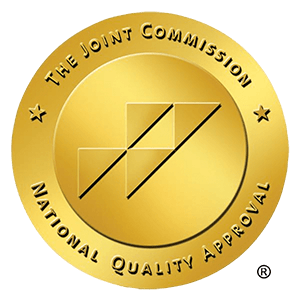Mental health and substance use affects millions of Americans each year. Core Recovery is here to help those struggling with mental health, addiction, trauma, and eating disorders feel like themselves again. As mental health and recovery specialists, we understand how critical it is to get the help you need now. Explore the most-asked questions about mental health, addiction, and recovery below.
Our integrated care model brings together a team of Psychiatric Nurse Practitioners, Counselors, Case Managers, and Behavioral Health Technicians to create a personalized and comprehensive treatment plan for each patient at our Arizona-based mental health facility.
With each new chapter, we know that there are many unknowns you can face, which is why we’ve curated a list of the most frequently asked questions so that you can get the answers and information that you need now.
Continue reading to get answers to the most frequently asked questions about mental health and addiction treatment and recovery with Core Recovery below.
At Core Recovery, we offer two main types of outpatient therapy programs—intensive outpatient and partial hospitalization. Depending on your current mental and health state, your goals, and your overall treatment needs, our recovery specialists will help you determine the best option for you.
Our intensive outpatient program (IOP) offers group therapy sessions and one-on-one counseling with a therapist for 9-19 hours per week.
IOP offers a wide range of services, which includes group, individual, and family therapy but may also include:
- Creative Expression and Art Therapy
- Medication management
- Drug testing
- Case management
IOP programs are needed for individuals whose level of addiction severity may require more counseling than the standard outpatient programs. Still, they do not warrant PHP, residential, or inpatient levels of treatment.
Partial hospitalization programs (PHP) are more intensive programs that can take place in either a free-standing clinic or in a hospital-based setting. Core Recovery’s Partial Hospitalization Program (PHP) offers a more intensive and rigorous treatment program for those living with co-occurring addiction and mental health issues in an outpatient setting, without the overnight requirements of a residential program. Patients participate in their scheduled treatment during the day and return home in the evening. PHP runs 20-25 hours a week, five hours a day, five days per week.
Out PHP program offers the following services:
- Group counseling
- Individual and family-systems counseling
- Psychiatric care
- Creative Expression and Art therapy
- Medication management
- Drug testing
- Case management
PHP may be a good choice for many people who are experiencing co-occurring conditions in mental health and substance use and need drug or alcohol treatment. Some individuals enter an IOP or PHP program after being discharged from an inpatient program.
However, it is essential to note that some people may benefit more from outpatient than others. You should speak with a recovery specialist to determine if outpatient therapy is right for you.
At Core Recovery, we have extensive experience treating all types of addiction, including:
- drugs
- alcohol
- tobacco
- social media
- codependency
- gaming
- social media
- Internet
Yes, absolutely.
Outpatient treatment is highly effective in treating all types of addiction, including drugs and alcohol.
Our outpatient programs are more accessible and flexible than an inpatient program.
Some of the biggest reasons to consider outpatient treatment include:
- Affordability. Because you can live at home during outpatient treatment, you don’t have to pay the costs of lodging at a residential or inpatient facility — making it more affordable.
- Flexibility. Our outpatient programs will work around your schedule. This benefits those who feel like they can’t leave their job or family for an extended period for treatment and counseling.
- Access to family. Throughout the outpatient treatment program, family involvement and support are vital in helping to encourage you to stay on the path to sobriety.
At Core Recovery, your treatment program will be customized for your individual needs.
Once we complete our evidence-based assessment and diagnosis, we’ll create a treatment program personalized for you.
Your outpatient treatment program will begin with an assessment of your needs.
A therapist will then create an individualized treatment plan based on your diagnosis and where you are in your recovery process.
You’ll work with your therapist on a schedule for how many days and hours you will attend the program each week, with whom you will meet, and what skills you will work on.
This treatment program and schedule can be adjusted as needed, depending on how you progress through the program.
We accept major insurance policies and offer reasonable cash pay options for those without insurance or without out-of-network benefits.
During your initial admissions call, we will be able to work with you directly on processing your treatment through your insurance or creating a viable cash pay schedule that meets your needs.
Core Recovery is set apart from the other IOP and PHP programs in that we are an integrated behavioral health program that is individually customized for you.
We use evidence-based modalities, including but not limited to EMDR, DBT, CBT, and ACT, depending on your specific needs.
We offer in-house group counseling (processing and psychoeducation), therapeutic art, individual counseling, family counseling, and psychiatric medication management.
We also have an in-house lab to support sobriety and monitor the medications prescribed to you.
Our multidisciplinary treatment team meets weekly to collaborate and identify ways to support you in meeting your treatment goals.
At Core Recovery, we take it a step further than other recovery centers through our understanding and consideration of your loved ones supporting you in your journey to recovery. We happily offer a family systems portion of our program for all involved family members to attend.
We understand that managing both treatment and your personal life can be stressful. That is why we have intentionally procured a caring and dedicated clinical staff with flexible schedules, which include daytime and evening hours, for both groups and individual therapy. This makes scheduling a breeze.
The short answer is that it depends.
We create an individual treatment plan for each patient, so the length of the program is tailored based on our patient’s clinical assessment.
IOP and PHP are designed to create a transition to a happier and more rewarding life—no matter how long that may take you.
On average, patients at Core Recovery attend IOP or PHP between three and six months.
If you are coming out of a hospital or residential treatment center or finding that the progress you would like to see with individual therapy is not there, it may be time to consider IOP or PHP.
Attending this level of care provides more structured support than individual therapy alone.
Individual therapy is a great start; however, if you believe you would benefit from a program that offers much more support, such as individual, group, family, and art therapy and psychiatric care (medication management), all in-house, then Core Recovery is right for you.
When participating in a PHP or IOP, you will spend more time in therapy, allowing you to get back to living life in abundance and regain the peace that you deserve in as quickly as three months to six months rather than years with individual counseling alone.
Yes, groups are the foundation of our program and are required at all levels of care and beneficial to your healing journey.
The number of groups will be prescribed to you at your initial mental health intake appointment.
Once you are a patient, you may meet with one of our clinicians for a weekly 60-minute individual counseling, 60-minute family systems counseling, and a 30-minute psychiatric/medication appointment.
We ask that you put all other psychiatric provider services on hold except for your primary care physician while receiving Core Recovery services.
Our team of knowledgeable, caring professionals, including psychiatric nurse practitioners, clinicians, case managers, behavioral health technicians, and medical assistants, will develop a customized treatment program to provide you with the best care.
It is common for patients to apply for FMLA or Short-Term Disability while in our care.
Often, approval is dependent on your level and amount of care, which is determined during your initial intake appointment.
Our PHP patients participate in the program for a minimum of 20 hours a week. The IOP requires a minimum of 9 hours and up to 19 hours a week.
We have weekly family systems counseling integrated into our PHP and IOP plans.
Family systems counseling aims to promote understanding and collaboration between couples or among family members to solve problems encircling one or more individuals with a focus on your recovery.
Studies have compared the relapse rates with both outpatient and inpatient treatment programs.
While the results are somewhat mixed, outpatient programs—particularly IOPs and PHPs—appear to be as effective as inpatient programs in helping people get and stay sober.
One study found that an outpatient program for alcoholics had a 58% abstinence rate and a 79% improvement rate in patients at a two-year follow-up.
Another study found a 67% abstinence rate for inpatient participants, a 75% abstinence rate for outpatient participants at a 6-month follow-up, a 60% abstinence rate for inpatient participants, and a 68% abstinence rate for outpatient participants at a one-year follow-up.
A review of 12 studies and one review published between 1995 and 2012 found that IOPs and PHPs produced similar reductions in drug and alcohol use and increases in days abstinent compared to inpatient or residential programs.
Recovery is an ongoing process that takes effort and support. Outpatient treatment lays the groundwork, but those in recovery must continue the work after treatment ends.
Aftercare programs help build on the foundation of outpatient treatment and help patients stay sober.
Once you complete your outpatient treatment, you’ll meet with your therapist to determine personalized next steps, which may include the following:
- Referrals to less frequent group therapy sessions in an outpatient program
- Referral to weekly individual meetings with a therapist or psychologist
- Referral to attendance at 12-step program.
- Recommendation to attend alumni meetings
- Planning for periodic check-ins by phone
You may participate in a combination of these, depending on your situation.
It’s important to remember that staying sober requires work, and most people who have been addicted to drugs or alcohol need to continue to be involved in ongoing care.
Meeting with a therapist or support group helps you stay motivated, work on relapse prevention skills, and help others with their sobriety.





 In CA By O360®
In CA By O360®